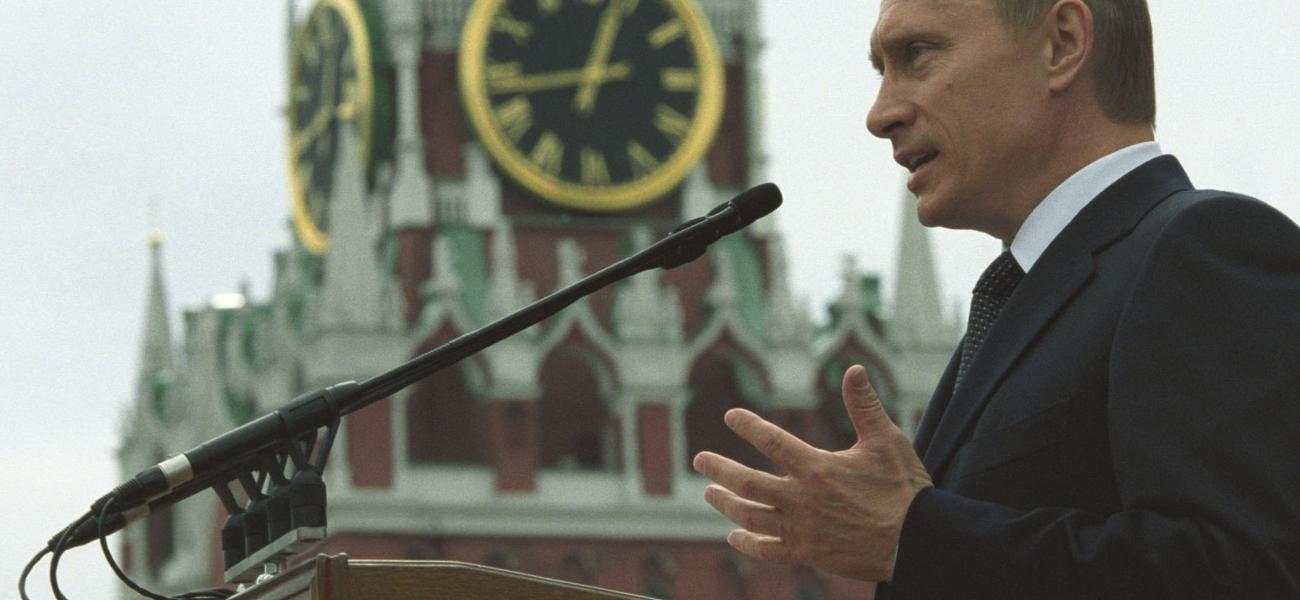
Russia’s Breakout From the Post-Cold War System: The Drivers of Putin’s Course
This publication originally appeared on the website of the Carnegie Moscow Center.
In 2014, Russia broke out of the post–Cold War order and openly challenged the U.S.-led international system. This was essentially the result of the failure of attempts to integrate Russia into the Euro-Atlantic community. The new period of rivalry between the Kremlin and the West is likely to endure for years. Moscow’s new course is laid down first and foremost by President Vladimir Putin, but it also reflects the rising power of Russian nationalism.
Russia’s New Foreign Policy Course
- Russian-Western relations have palpably deteriorated since the last failed attempt at rapprochement during President Dmitry Medvedev’s term, in 2009–2011. Ukraine is the main geographical locus and symbol of the new rivalry, but not its primary cause.
- To Putin, the West’s approach to Russia barely respects Moscow’s interests and views. Russia’s failed rapprochement with and perceived humiliation at the hands of the West have opened the way to a more nationalist domestic and foreign policy course that replaces the remnants of Russian liberalism and internationalism.
- The centerpiece of this approach is winning full sovereignty for Russia by eliminating foreign political influence in the country and ensuring that Moscow’s special interests in its former borderlands are recognized. Fundamental to this vision are conservative values, rooted in the Orthodox Christian tradition.
Takeaways for Western Leaders
- Both the Ukraine crisis and the sanctions regime imposed on Russia by the United States and the European Union mobilize Russians in support of the country’s new foreign policy course.
- Confrontation with Russia carries the non-negligible potential of a direct military collision of former Cold War adversaries, with unforeseen consequences. The situation in Ukraine must not be allowed to escalate dangerously, and Russia and the West should forge a set of strategic confidence-building measures to prevent a clash.
- While official communication between the Kremlin and Western government offices is exceedingly difficult and mutual trust is nonexistent, reliable channels of communication need to be built and credible dialogue partners found on both sides to avoid miscalculation.
- To Putin, Russia should be, above all, an independent and influential nation. To achieve that and avoid squandering its resources and losing independence to more powerful states, Russia needs a national, meritocratic class of elites.
- The urge to shut Russia out and pressure ordinary Russians should be resisted by all means. While Russia’s integration with Europe and the West more broadly as originally designed is off the agenda, ways must be found to open the door even more widely for people-to-people exchanges.
Dmitri Trenin
Dmitri Trenin is the director of the Carnegie Moscow Center, where he also chairs the research council and the Foreign and Security Policy Program.
Also by Dmitri Trenin on Carnegie.ru:
Information Is a Potent Weapon in the New Cold War, Sept. 18, 2016
Russia-China Entente Must Move Past Rhetoric, Sept. 8, 2016
Russia and Iran: Historic Mistrust and Contemporary Partnership, Aug. 18, 2016
Photo credit: Wikicommons photo by kremlin.ru shared under a Creative Commons (BY 4.0) license
